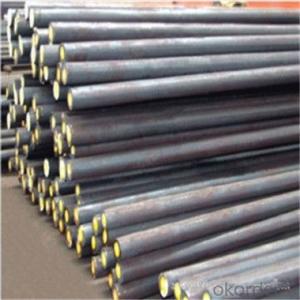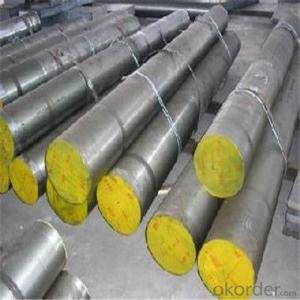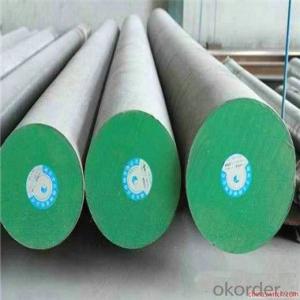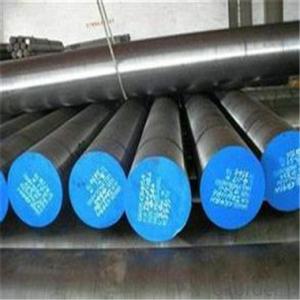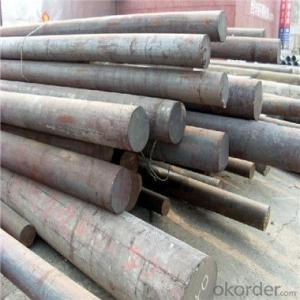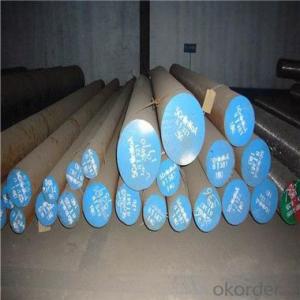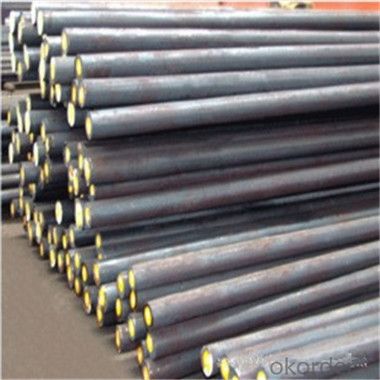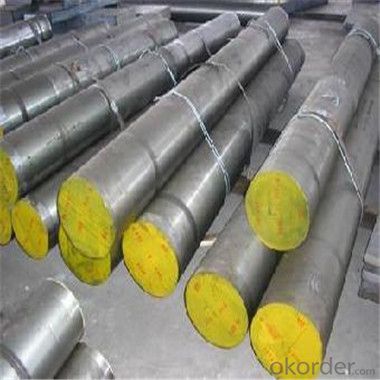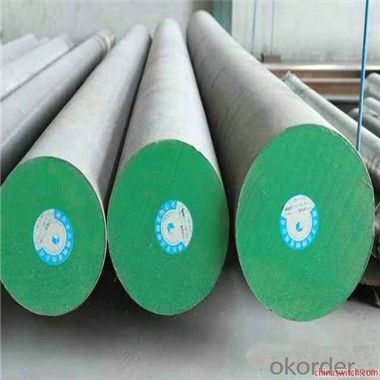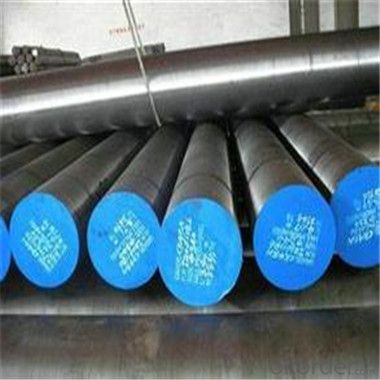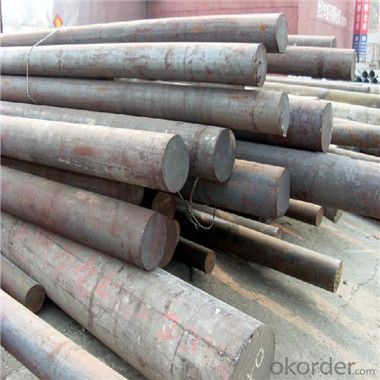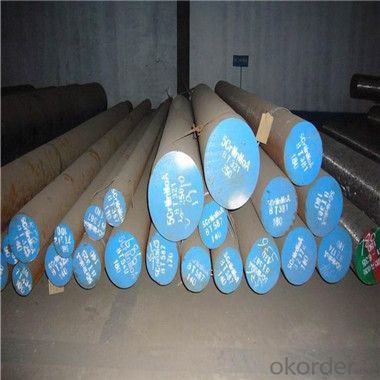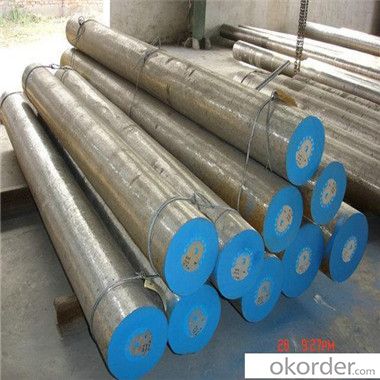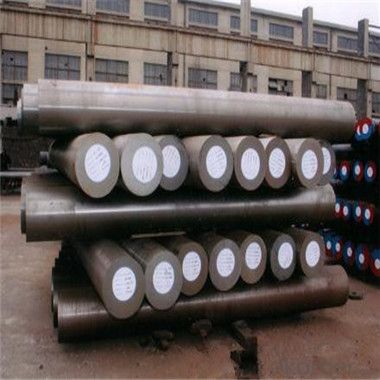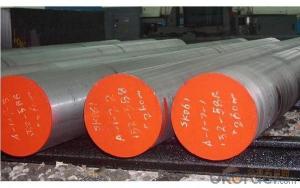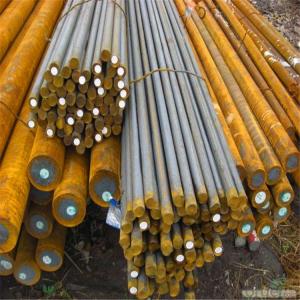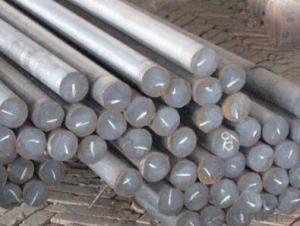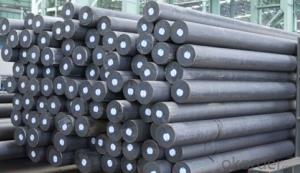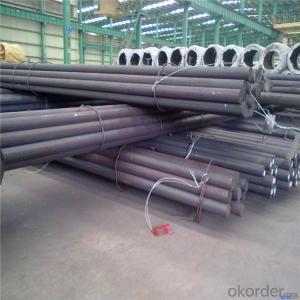S20C-B/S45C-B Steel Round Bar
- Loading Port:
- China main port
- Payment Terms:
- TT OR LC
- Min Order Qty:
- 5 m.t.
- Supply Capability:
- 100000 m.t./month
OKorder Service Pledge
OKorder Financial Service
You Might Also Like
Specification
S20C-B/S45C-B Steel Round Bar
Specifications
S20C-B/S45C-B steel round bar
Dia 18-60mm
Grade 20,45#
Standard GB,JIS,ASTM,DIN,AISI,BS
LF & VD forge;ISO&TUV approved
S20C-B/S45C-B steel round bar
Round bar steel diameter 18-60mm,material 20#,45#,55#,40CrUP,40CrUC,40Mn2,20CrMnTi,42CrMo
Rolling tube blank diameter 50-130mm.material 20#,45#,10#,35#,37Mn5,Q345,20Mn2/30Mn2,45Mn2,27SiMn
Casting round tube blank diameter160-230mm,material 20#,45#,25Mn,Q345B,20Mn2/30Mn2,45Mn2,27SiMn,33Mn2V/36Mn2V,
Bearing steel diameter18-60mm,material GCr15,Flat spring steel material 60Si2Mn,55CrMnA,50CrVA
Grade | Dia(mm) | C | Si | Mn | P | S | Ni | Cu | Cr |
20 |
18-60
| 0.17-0.23 | 0.17-0.37 | 0.35-0.65 | ≤0.035 | ≤0.035 | ≤0.30 | ≤0.25 | ≤0.25 |
45 | 0.42-0.50 | 0.17-0.37 | 0.35-0.65 | ≤0.035 | ≤0.035 | ≤0.30 | ≤0.25 | ≤0.25 |
Products
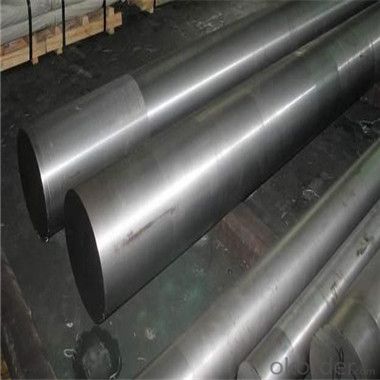
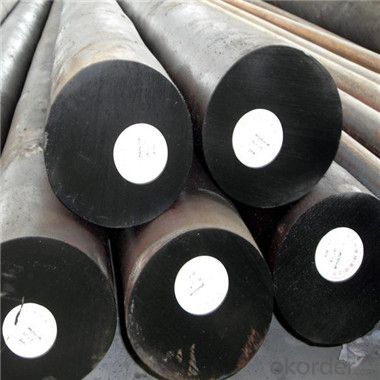
- Q: What are the advantages of using duplex steel round bars?
- There are several advantages of using duplex steel round bars in various applications. Firstly, duplex steel round bars offer excellent corrosion resistance. This type of steel contains a balanced combination of chromium, nickel, and molybdenum, which enables it to withstand harsh environments, including marine and chemical industries. This corrosion resistance makes duplex steel round bars ideal for applications where exposure to corrosive elements is high. Secondly, duplex steel round bars possess high strength and toughness. The duplex microstructure of this steel combines both ferrite and austenite phases, resulting in a material with higher strength compared to traditional stainless steels. This enhanced strength and toughness make duplex steel round bars suitable for demanding applications that require high load-bearing capacities. Additionally, duplex steel round bars exhibit good fatigue resistance. This property makes them suitable for applications subjected to cyclic loading or dynamic stress, such as in structural components or machinery parts. The fatigue resistance of duplex steel allows for extended service life and reliability in such applications. Another advantage of using duplex steel round bars is their superior weldability. They offer good weldability due to their balanced chemical composition and microstructure. This makes it easier to fabricate and join duplex steel round bars, reducing production time and costs in various industries. Furthermore, duplex steel round bars have excellent resistance to stress corrosion cracking (SCC). SCC occurs when a material is exposed to a corrosive environment combined with tensile stresses, leading to premature failure. The ability of duplex steel to resist SCC makes it a preferred choice for applications where the risk of stress corrosion cracking is high, such as in offshore and oil and gas industries. Lastly, duplex steel round bars offer cost-effective solutions. Despite their superior properties, duplex steel round bars are often more cost-effective than other high-performance materials. Their long service life, reduced maintenance requirements, and overall durability contribute to lower lifecycle costs, making them an economical choice for various applications. In summary, the advantages of using duplex steel round bars include excellent corrosion resistance, high strength and toughness, good fatigue resistance, superior weldability, resistance to stress corrosion cracking, and cost-effectiveness. These properties make duplex steel round bars a preferred choice for a wide range of industries, including oil and gas, chemical processing, marine, and structural applications.
- Q: What is the tensile strength of steel round bars?
- The tensile strength of steel round bars varies depending on the specific grade or type of steel used. On average, steel round bars possess a tensile strength ranging from 400 to 500 megapascals (MPa). This implies that steel round bars can endure a pulling or stretching force of 400 to 500 MPa before undergoing permanent deformation or fracturing. It is worth mentioning that varying grades of steel, such as mild steel, carbon steel, or alloy steel, may exhibit different tensile strength values. Moreover, factors like heat treatment, manufacturing process, and round bar size can also impact its tensile strength. Therefore, it is advisable to seek accurate and precise information regarding the tensile strength of a particular steel round bar from the specific manufacturer or supplier.
- Q: What is the hardness of a steel round bar?
- The hardness of a steel round bar can vary depending on the specific type of steel and the manufacturing process used. Steel is typically measured for hardness using the Rockwell hardness scale, which measures the depth of indentation caused by a specific load on a diamond or steel ball. Common hardness values for steel round bars can range from around 20 to 60 Rockwell C (HRC), with higher numbers indicating a harder material. However, it is important to note that the hardness of a steel round bar can also be influenced by factors such as heat treatment, alloying elements, and any surface treatments applied. Therefore, it is essential to consult the specific hardness specifications provided by the manufacturer or supplier to accurately determine the hardness of a steel round bar.
- Q: What are the quality control measures for steel round bars?
- Steel round bars are subject to a series of inspections and tests to ensure that they meet the necessary standards and specifications. These measures play a vital role in guaranteeing the bars' structural integrity and reliability. Common quality control measures for steel round bars include: 1. Visual Inspection: Bars are visually examined to identify any surface defects like cracks, pits, or rust. This ensures that the bars have a smooth surface finish and are free from visible imperfections. 2. Dimensional Inspection: The diameter, length, and straightness of the bars are measured to ensure they adhere to the required tolerances. Any deviations from the specified dimensions can impact the bars' performance and compatibility in different applications. 3. Chemical Composition Analysis: Chemical composition analysis is carried out to confirm the percentage of various elements present in the steel. This analysis ensures that the bars possess the correct alloying elements in the proper proportions, which directly influence their mechanical properties and performance. 4. Mechanical Testing: Various mechanical tests are conducted to assess the bars' strength, hardness, and other mechanical properties. These tests may include tensile, impact, and hardness testing. They help determine if the bars meet the necessary durability and strength standards. 5. Ultrasonic Testing: Ultrasonic testing is often employed to detect internal defects such as voids, inclusions, or cracks within the steel round bars. This non-destructive testing technique utilizes high-frequency sound waves to identify flaws that may compromise the bars' structural integrity. 6. Surface Treatment Inspection: If the steel round bars undergo any surface treatments like heat treatment or coating, an inspection is conducted to ensure that these treatments are correctly applied and meet the required specifications. 7. Certification and Documentation: Quality control measures also encompass proper documentation and certification of the steel round bars. This ensures traceability and provides evidence that the bars have undergone the necessary inspections and tests, instilling confidence in customers regarding the product's quality. In summary, these quality control measures for steel round bars guarantee their high quality, compliance with necessary specifications, and suitability for their intended applications.
- Q: What are the different types of steel round bars used in the automotive steering systems?
- There are several types of steel round bars used in automotive steering systems, including carbon steel, alloy steel, and stainless steel. Carbon steel round bars are commonly used due to their affordability and high strength properties. Alloy steel round bars are used when higher strength and durability are required, as they have additional alloying elements such as chromium, nickel, and molybdenum. Stainless steel round bars are preferred for their corrosion resistance properties, making them suitable for steering components exposed to harsh environments or moisture.
- Q: How are steel round bars priced?
- Steel round bars are typically priced based on several factors. One of the key factors is the cost of raw materials, which includes the cost of steel billets or ingots used to produce the round bars. The price of these raw materials can fluctuate based on market conditions, such as supply and demand dynamics and changes in input costs. Another factor that influences the pricing of steel round bars is the manufacturing process involved. The cost of transforming raw materials into finished round bars includes expenses such as energy consumption, labor costs, and equipment maintenance. These costs can vary depending on the complexity of the manufacturing process and the efficiency of the production facilities. Market conditions also play a significant role in determining the pricing of steel round bars. Factors such as global economic trends, industry demand, and competition among suppliers can impact the market price. If there is high demand for steel round bars, manufacturers may be able to charge a premium price. Conversely, during periods of oversupply, prices may be lower as suppliers compete for customers. Additionally, the size, grade, and quality of the steel round bars can affect the pricing. Larger diameter bars or specialty grades that require additional processing steps or high-quality raw materials may be priced higher than standard sizes or lower-grade bars. Finally, transportation costs and logistics can also influence the pricing of steel round bars. Shipping distances, freight rates, and any additional handling fees can add to the overall cost of the product. In summary, the pricing of steel round bars is influenced by the cost of raw materials, the manufacturing process, market conditions, the size and grade of the bars, and transportation costs. Understanding these factors can help buyers and sellers negotiate fair prices for steel round bars.
- Q: Can steel round bars be used for making wire?
- Steel round bars are capable of being utilized for the production of wire. A technique known as wire drawing is employed to convert steel round bars into wire. This method involves pulling the steel round bar through a succession of progressively smaller dies in order to decrease its diameter until it achieves the desired wire size. This technique is widely employed in the manufacturing of different wire types, such as steel wire used in construction, electrical wiring, fencing, and other diverse applications. Typically, the steel round bars employed for wire production are crafted from carbon steel, which imparts the requisite strength and longevity for the wire to fulfill its various purposes.
- Q: What is the difference between hot working and cold working of steel round bars?
- Steel round bars can be shaped and manipulated using two different methods: hot working and cold working. Hot working involves shaping steel at high temperatures, typically above the steel's recrystallization temperature. This makes the material more malleable and easier to shape. The processes involved in hot working include forging, rolling, and extrusion. Hot working has several advantages. It allows for the creation of complex shapes and sizes with minimal force or energy. It also improves the mechanical properties of the steel, such as strength and toughness, by refining its grain structure. However, hot working can cause oxidation and scale formation on the steel's surface, which may require additional treatments or cleaning. On the other hand, cold working refers to shaping steel at room temperature or below its recrystallization temperature. Cold working processes include bending, drawing, and cold rolling. Unlike hot working, cold working does not require heating the steel, which reduces energy consumption and production costs. It also results in a smoother surface finish and tighter tolerances compared to hot working. Cold working can increase the hardness and strength of the steel, making it suitable for applications that require higher mechanical properties. However, it can also make the steel more brittle and prone to cracking. In conclusion, the main difference between hot working and cold working steel round bars lies in the temperature at which the shaping process takes place. Hot working is done at high temperatures, making shaping easier and improving mechanical properties. Cold working, on the other hand, is done at room temperature or below, resulting in tighter tolerances and increased hardness. The choice between hot working and cold working depends on the desired properties and characteristics of the final product.
- Q: Can steel round bars be used for hydraulic cylinder applications?
- Certainly, hydraulic cylinder applications can indeed make use of steel round bars. Given their remarkable strength and durability, steel round bars find frequent application in the fabrication of hydraulic cylinders. They exhibit exceptional resistance to impact, corrosion, and wear, rendering them ideal for demanding tasks. Furthermore, steel round bars can be conveniently machined and shaped to meet precise dimensional specifications for hydraulic cylinder components. Consequently, steel round bars enjoy significant popularity when it comes to hydraulic cylinder applications.
- Q: Are steel round bars used in the manufacturing of machinery?
- Yes, steel round bars are commonly used in the manufacturing of machinery. Steel round bars are a versatile and durable material that can be used in various applications, including the construction of machinery components. The round shape allows for easy machining and fabrication, making it suitable for producing shafts, axles, gears, and other critical parts in machinery. The high strength and toughness of steel make it ideal for withstanding heavy loads and impact, ensuring the reliability and longevity of the machinery. Additionally, steel round bars can be customized and tailored to meet specific design requirements, allowing manufacturers to create machinery that is efficient, precise, and capable of delivering optimal performance.
Send your message to us
S20C-B/S45C-B Steel Round Bar
- Loading Port:
- China main port
- Payment Terms:
- TT OR LC
- Min Order Qty:
- 5 m.t.
- Supply Capability:
- 100000 m.t./month
OKorder Service Pledge
OKorder Financial Service
Similar products
Hot products
Hot Searches
Related keywords
